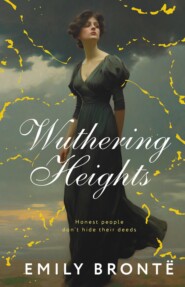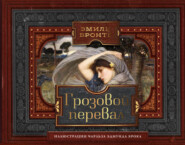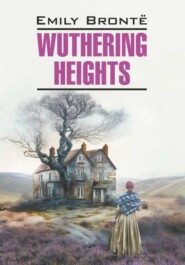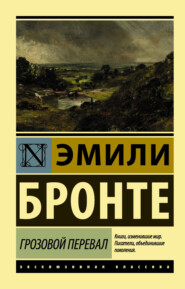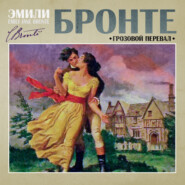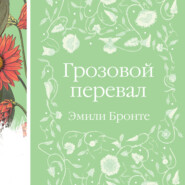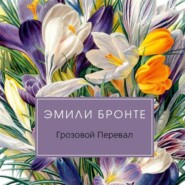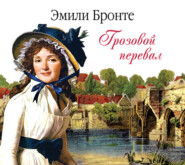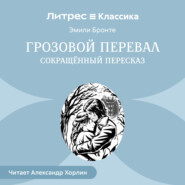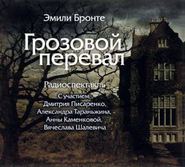По всем вопросам обращайтесь на: info@litportal.ru
(©) 2003-2024.
✖
Poems by Currer, Ellis, and Acton Bell
Настройки чтения
Размер шрифта
Высота строк
Поля
My sister Emily loved the moors. Flowers brighter than the rose bloomed in the blackest of the heath for her; out of a sullen hollow in a livid hill-side her mind could make an Eden. She found in the bleak solitude many and dear delights; and not the least and best loved was – liberty.
Liberty was the breath of Emily's nostrils; without it, she perished. The change from her own home to a school, and from her own very noiseless, very secluded, but unrestricted and inartificial mode of life, to one of disciplined routine (though under the kindliest auspices), was what she failed in enduring. Her nature proved here too strong for her fortitude. Every morning when she woke, the vision of home and the moors rushed on her, and darkened and saddened the day that lay before her. Nobody knew what ailed her but me – I knew only too well. In this struggle her health was quickly broken: her white face, attenuated form, and failing strength, threatened rapid decline. I felt in my heart she would die, if she did not go home, and with this conviction obtained her recall. She had only been three months at school; and it was some years before the experiment of sending her from home was again ventured on. After the age of twenty, having meantime studied alone with diligence and perseverance, she went with me to an establishment on the Continent: the same suffering and conflict ensued, heightened by the strong recoil of her upright, heretic and English spirit from the gentle Jesuitry of the foreign and Romish system. Once more she seemed sinking, but this time she rallied through the mere force of resolution: with inward remorse and shame she looked back on her former failure, and resolved to conquer in this second ordeal. She did conquer: but the victory cost her dear. She was never happy till she carried her hard-won knowledge back to the remote English village, the old parsonage-house, and desolate Yorkshire hills. A very few years more, and she looked her last on those hills, and breathed her last in that house, and under the aisle of that obscure village church found her last lowly resting-place. Merciful was the decree that spared her when she was a stranger in a strange land, and guarded her dying bed with kindred love and congenial constancy.
The following pieces were composed at twilight, in the school-room, when the leisure of the evening play-hour brought back in full tide the thoughts of home.
I
A LITTLE while, a little while,
The weary task is put away,
And I can sing and I can smile,
Alike, while I have holiday.
Where wilt thou go, my harassed heart —
What thought, what scene invites thee now
What spot, or near or far apart,
Has rest for thee, my weary brow?
There is a spot, 'mid barren hills,
Where winter howls, and driving rain;
But, if the dreary tempest chills,
There is a light that warms again.
The house is old, the trees are bare,
Moonless above bends twilight's dome;
But what on earth is half so dear —
So longed for – as the hearth of home?
The mute bird sitting on the stone,
The dank moss dripping from the wall,
The thorn-trees gaunt, the walks o'ergrown,
I love them – how I love them all!
Still, as I mused, the naked room,
The alien firelight died away;
And from the midst of cheerless gloom,
I passed to bright, unclouded day.
A little and a lone green lane
That opened on a common wide;
A distant, dreamy, dim blue chain
Of mountains circling every side.
A heaven so clear, an earth so calm,
So sweet, so soft, so hushed an air;
And, deepening still the dream-like charm,
Wild moor-sheep feeding everywhere.
THAT was the scene, I knew it well;
I knew the turfy pathway's sweep,
That, winding o'er each billowy swell,
Marked out the tracks of wandering sheep.
Could I have lingered but an hour,
It well had paid a week of toil;
But Truth has banished Fancy's power:
Restraint and heavy task recoil.
Even as I stood with raptured eye,
Absorbed in bliss so deep and dear,
My hour of rest had fleeted by,
And back came labour, bondage, care.
II. THE BLUEBELL
The Bluebell is the sweetest flower
That waves in summer air:
Its blossoms have the mightiest power
To soothe my spirit's care.
There is a spell in purple heath
Too wildly, sadly dear;
The violet has a fragrant breath,
But fragrance will not cheer,
The trees are bare, the sun is cold,
And seldom, seldom seen;
The heavens have lost their zone of gold,
And earth her robe of green.
And ice upon the glancing stream
Has cast its sombre shade;
And distant hills and valleys seem
In frozen mist arrayed.
The Bluebell cannot charm me now,
The heath has lost its bloom;
The violets in the glen below,
They yield no sweet perfume.
But, though I mourn the sweet Bluebell,
'Tis better far away;
I know how fast my tears would swell
To see it smile to-day.
For, oh! when chill the sunbeams fall
Adown that dreary sky,
And gild yon dank and darkened wall
With transient brilliancy;







